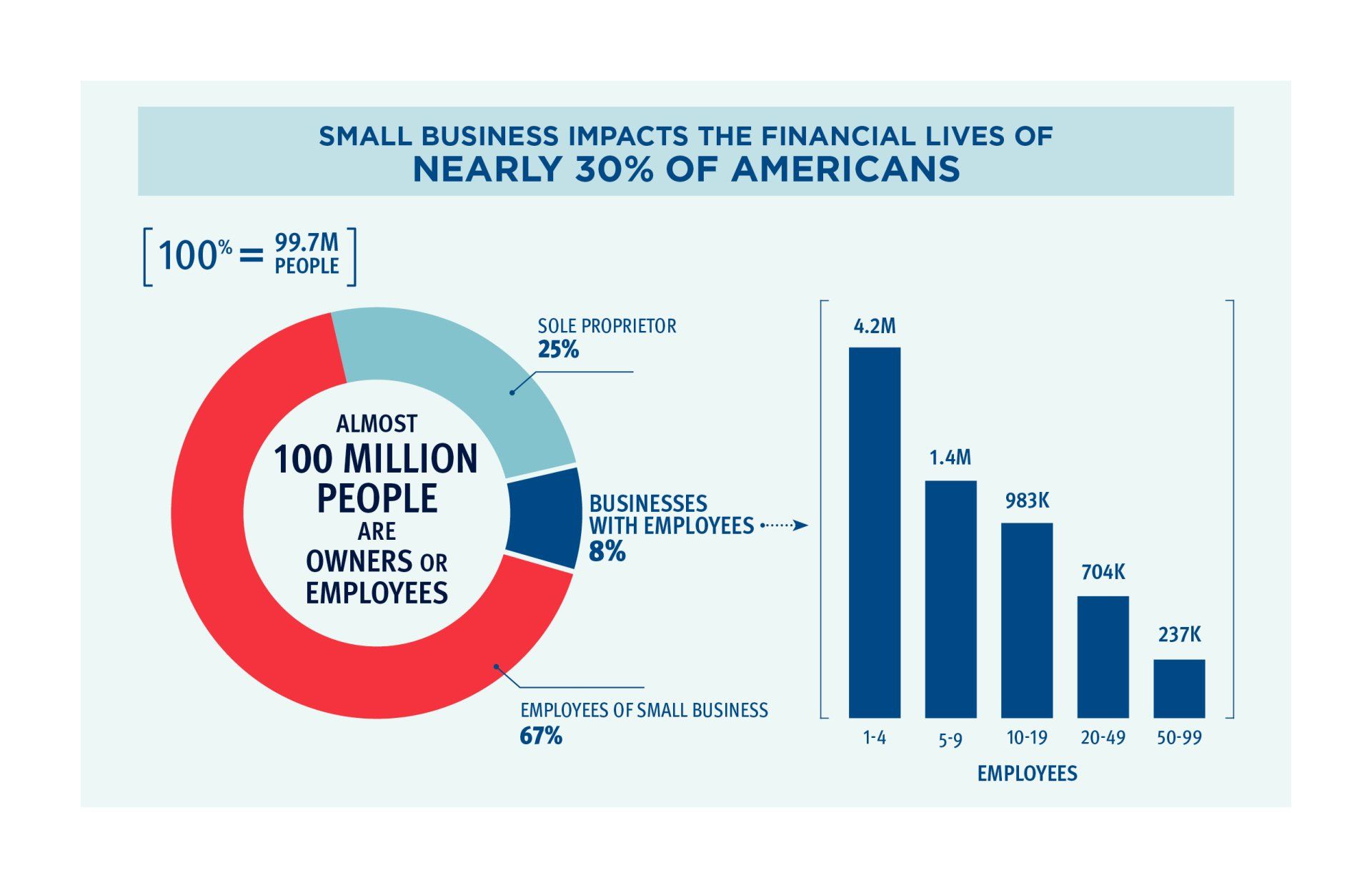SMALL BUSINESS, BIG IMPACT:
Philanthropy’s Untapped Opportunity to Advance Health and Equity
October 28, 2019
OVERVIEW
KEY TAKEAWAY
Leaders in philanthropy increasingly recognize the role of business in advancing their objectives. To date, the primary focus of most efforts to engage business has been on large companies. Yet, small businesses are an untapped resource and should be a valuable partner in creating opportunities to advance health, equity and an inclusive economy.
BACKGROUND
Over the last year, Public Private Strategies (PPS) conducted research funded by the Robert Wood Johnson Foundation to better understand opportunities for philanthropy to engage small business in advancing health equity, defined as creating equal opportunities for all individuals to achieve the healthiest life possible. The report details ways to effectively and efficiently engage small business owners in this work. As part of this research, PPS conducted close to 100 interviews with small business leaders, philanthropic and ecosystem actors across the country.
KEY FINDINGS
Small business owners are leading members of their communities, but efforts to engage them should respect the unique traits of the small business community. Top takeaways for engagement include:
Small business owners are numerous and diverse
There are 30 million small businesses across the United States, representing over 90% of all businesses in the country. What’s more, 43% of small businesses are found in low-wealth communities. Diverse entrepreneurs are starting businesses at higher rates creating jobs and income in these economically-disadvantaged areas.
Business ownership is a driver of wealth creation
Business ownership is a proven path to addressing the racial wealth gap. On average, business-owning households hold more than twice the wealth of their wage-earning peers and the wealth-creation impact is more pronounced for business owners of color.
Rethink the current engagement model with “business” to include small business
Absent purposeful action, the opportunity to harness the power of small businesses will be missed. Engaging small business in advancing health and equity objectives will require foundations to consider collaborations that move beyond the usual suspects to include nontraditional partners.
Listening between partners needs to improve
Philanthropy needs to invest in infrastructure that allows them to listen to and engage small business. Additionally, foundations need to increase dialogue and identify opportunities for cross-sector funding collaboratives to amplify impact of traditional community development.
RECOMMENDATIONS FOR PHILANTHROPY
In addition to the above takeaways about small business engagement, our recommendations for philanthropy are organized into seven areas of opportunity. These include:
ADVANCE HEALTH EQUITY & INCLUSIVE ECONOMIES
INFORM PRIORITIES & PROMOTE POLICIES
LEARN MORE
This report inspires and promotes better engagement of small business owners into existing and future efforts to promote health, equity and economic inclusion in communities nationwide.















